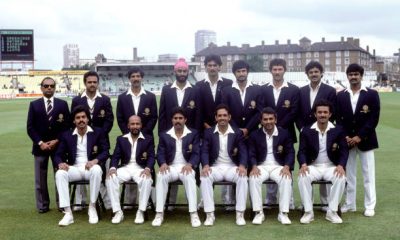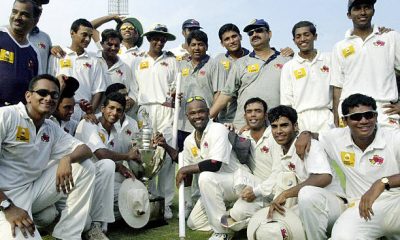
Image credit: Getty Images
Who are the Ballon d’Or Winners?
Ballon d’Or winners are football players who have always had top performance in European football. Ballon d’Or always translated as ”the Golden Ball” is an annual football award presented by France Football Magazine. First introduced in 1956, it was initially restricted to European players playing in Europe. Over time, the parameters changed, and so did the award’s global status. Today, it recognizes the best male and female footballers on the planet, based on their performance over the calendar year.
Unlike league trophies or tournament medals, the Ballon d’Or is not a team prize. It is a proof of singular brilliance among the most decorated football players.
The History of the Ballon d’Or Winners
The Ballon d’Or was started in 1956 by France Football Magazine, a leading French magazine that want to honor the best European footballer each year. The first winner was England’s Sir Stanley Matthews, a legendary winger for Blackpool.
When it started, the rule for selection is that Only European players will be chosen. This meant stars like Pelé, Diego Maradona, and Garrincha though very good but were never eligible. Nevertheless, the award honours the best of the best within its border.
Notable early winners included:
- Alfredo Di Stéfano (Real Madrid)
- Lev Yashin (Dynamo Moscow), the only goalkeeper to ever win
- George Best, Bobby Charlton, and Johan Cruyff
The Ballon d’Or’s transformation moment came in 1995, when it opened eligibility to non-European players playing for European clubs. George Weah, the dazzling Liberian forward who electrified AC Milan is the first non-european to win the Ballon d’or award.
For decades, the Ballon d’Or was male-only. That changed in 2018 with the introduction of the Ballon d’Or Féminin. Norwegian striker Ada Hegerberg became the first winner.
Who Votes in the Ballon d’Or?
The Ballon d’Or is not awarded by fans vote. It is awarded by votes from football journalists around the world—one representative from each of FIFA’s member countries. Voting rights are limited to countries ranked in the top 100 of FIFA rankings (for men’s award) and top 50 (for women’s award).
Each journalist selects their top five players, and points are awarded by ranking them e.g(6 points for first place, 4 for second, 3 for third, etc.). The player with the highest total points wins the award. If there’s a tie, the number of first-place votes determines the winner.
It is a global process looking into the performance, ethics, and influence of each player.
The Official Ballon d’Or Criteria for Winning
1. Individual and Collective Performances (Trophies Won)
- Goals, assists, saves, tackles, and key plays matter.
- Winning major titles such as the World Cup, Champions League, or domestic leagues significantly boosts a player’s chances.
- Performance is judged across the season/calendar year, not just in tournaments.
Example: Luka Modrić’s 2018 win was fueled by Croatia’s World Cup final run and Real Madrid’s UCL title.
2. Player Class (Talent + Fair Play)
- This includes technical skill, style, consistency, and charisma on the pitch.
- Also includes discipline, leadership, and respect for the game.
- The Ballon d’Or honors not just the lethal, but the elegant.
Example: Ronaldinho’s 2005 triumph combined mesmerizing performance with humility and sportsmanship.
3. Overall Career and Legacy (For Tie-Breakers)
- If two players are inseparable, career trajectory, past contributions, and longevity may tilt the balance.
- It’s a nod to players who’ve consistently shaped football’s narrative over time.
Example: Lionel Messi’s 2021 win likely leaned partly on his long-standing dominance.
FIFA Merging and breaking away from Ballon d’or (2010 – 2015)
From 2010 to 2015, the Ballon d’Or merged with FIFA’s World Player of the Year to become the FIFA Ballon d’Or. This joining brought credibility and controversy. Also brought about additional people to Vote. This people include:
- Journalists
- National team coaches
- National team captains
Some effects, such as players popularity among fans, broader representations across continents and the award presentation becoming a FIFA-organized spectacle also influenced the award more than ever. Accusations of fan bias, lobbying, and media manipulation grew. Many argued the award lost its independent journalistic accuracy.
Some notable winners during this period include:
- Lionel Messi won 4 consecutive titles (2009–2012).
- Cristiano Ronaldo won 2 (2013, 2014).
But in 2016, the marriage dissolved. France Football reclaimed the brand. FIFA created The Best FIFA Football Awards. The Ballon d’Or stood alone once again.
Ballon d’or winners men List from 1956 till date
Below is a list of every Ballon d’Or winners since inception, a hall of fame for football’s finest craftsmen.
| Year | Winner | Nationality | Club(s) During the Year |
| 1956 | Stanley Matthews | England | Blackpool |
| 1957 | Alfredo Di Stéfano | Spain/Argentina | Real Madrid |
| 1958 | Raymond Kopa | France | Real Madrid |
| 1959 | Alfredo Di Stéfano | Spain/Argentina | Real Madrid |
| 1960 | Luis Suárez Miramontes | Spain | Barcelona |
| 1961 | Omar Sívori | Italy/Argentina | Juventus |
| 1962 | Josef Masopust | Czechoslovakia | Dukla Prague |
| 1963 | Lev Yashin | USSR (Russia) | Dynamo Moscow |
| 1964 | Denis Law | Scotland | Manchester United |
| 1965 | Eusébio | Portugal | Benfica |
| 1966 | Bobby Charlton | England | Manchester United |
| 1967 | Flórián Albert | Hungary | Ferencváros |
| 1968 | George Best | Northern Ireland | Manchester United |
| 1969 | Gianni Rivera | Italy | AC Milan |
| 1970 | Gerd Müller | Germany | Bayern Munich |
| 1971 | Johan Cruyff | Netherlands | Ajax |
| 1972 | Franz Beckenbauer | Germany | Bayern Munich |
| 1973 | Johan Cruyff | Netherlands | Barcelona |
| 1974 | Johan Cruyff | Netherlands | Barcelona |
| 1975 | Oleg Blokhin | USSR (Ukraine) | Dynamo Kyiv |
| 1976 | Franz Beckenbauer | Germany | Bayern Munich |
| 1977 | Allan Simonsen | Denmark | Borussia Mönchengladbach |
| 1978 | Kevin Keegan | England | Hamburg |
| 1979 | Kevin Keegan | England | Hamburg |
| 1980 | Karl-Heinz Rummenigge | Germany | Bayern Munich |
| 1981 | Karl-Heinz Rummenigge | Germany | Bayern Munich |
| 1982 | Paolo Rossi | Italy | Juventus |
| 1983 | Michel Platini | France | Juventus |
| 1984 | Michel Platini | France | Juventus |
| 1985 | Michel Platini | France | Juventus |
| 1986 | Igor Belanov | USSR (Ukraine) | Dynamo Kyiv |
| 1987 | Ruud Gullit | Netherlands | AC Milan |
| 1988 | Marco van Basten | Netherlands | AC Milan |
| 1989 | Marco van Basten | Netherlands | AC Milan |
| 1990 | Lothar Matthäus | Germany | Inter Milan |
| 1991 | Jean-Pierre Papin | France | Marseille |
| 1992 | Marco van Basten | Netherlands | AC Milan |
| 1993 | Roberto Baggio | Italy | Juventus |
| 1994 | Hristo Stoichkov | Bulgaria | Barcelona |
| 1995 | George Weah | Liberia | AC Milan |
| 1996 | Matthias Sammer | Germany | Borussia Dortmund |
| 1997 | Ronaldo | Brazil | Inter Milan |
| 1998 | Zinedine Zidane | France | Juventus |
| 1999 | Rivaldo | Brazil | Barcelona |
| 2000 | Luís Figo | Portugal | Real Madrid |
| 2001 | Michael Owen | England | Liverpool |
| 2002 | Ronaldo | Brazil | Real Madrid |
| 2003 | Pavel Nedvěd | Czech Republic | Juventus |
| 2004 | Andriy Shevchenko | Ukraine | AC Milan |
| 2005 | Ronaldinho | Brazil | Barcelona |
| 2006 | Fabio Cannavaro | Italy | Real Madrid |
| 2007 | Kaká | Brazil | AC Milan |
| 2008 | Cristiano Ronaldo | Portugal | Manchester United |
| 2009 | Lionel Messi | Argentina | Barcelona |
| 2010 | Lionel Messi | Argentina | Barcelona |
| 2011 | Lionel Messi | Argentina | Barcelona |
| 2012 | Lionel Messi | Argentina | Barcelona |
| 2013 | Cristiano Ronaldo | Portugal | Real Madrid |
| 2014 | Cristiano Ronaldo | Portugal | Real Madrid |
| 2015 | Lionel Messi | Argentina | Barcelona |
| 2016 | Cristiano Ronaldo | Portugal | Real Madrid |
| 2017 | Cristiano Ronaldo | Portugal | Real Madrid |
| 2018 | Luka Modrić | Croatia | Real Madrid |
| 2019 | Lionel Messi | Argentina | Barcelona |
| 2020 | cancelled | – | – |
| 2021 | Lionel Messi | Argentina | PSG |
| 2022 | Karim Benzema | France | Real Madrid |
| 2023 | Lionel Messi | Argentina | PSG |
| 2024 | Rodrigo Hernández | Spain | Manchester City |
Ballon d’or winners Female List from 2018 till date
Here is the full list of Ballon d’Or Female winners from 2018 to 2023, including their nationality and club at the time of the award.
| Year | Winner | Nationality | Club(s) During the Year |
| 2018 | Ada Hegerberg | Norway | Olympique Lyonnais |
| 2019 | Megan Rapinoe | USA | Reign FC |
| 2020 | Cancelled | – | – |
| 2021 | Alexia Putellas | Spain | Barcelona |
| 2022 | Alexia Putellas | Spain | Barcelona |
| 2023 | Aitana Bonmatí | Spain | Barcelona |
| 2024 | Aitana Bonmatí | Spain | Barcelona |
What is the Super Ballon d’Or?
The Super Ballon d’Or is an extraordinary football award created by France Football magazine, the same organization behind the annual Ballon d’Or.
Unlike the regular Ballon d’Or, which is awarded every year based on that season’s or year’s performance, the Super Ballon d’Or is a once-in-a-lifetime honor. It recognizes a player not just for one outstanding season, but for a career of unmatched greatness, influence, and legacy.
This award is not part of any annual voting tradition. It is a symbolic crown that supersedes all others.
Amongst all ballon do’r winners in history, only one man has ever received the Super Ballon d’Or: Alfredo Di Stéfano. It was awarded in the year 1989 when he was 63 years old. Di Stéfano was a two-time Ballon d’Or winner (1957, 1959), but his influence transcended even those accolades. He was the architect of Real Madrid’s golden era, a forward who could dominate every inch of the pitch—scoring, defending, orchestrating an attack. His contribution to football during the 1950s and 60s was so big that, three decades later, France Football honored him with the only Super Ballon d’Or in history.
So far, France Football has never repeated the honor.
However, in recent years, fans and pundits have speculated whether modern legends deserve a second edition. The two most mentioned names:
- Lionel Messi – 8 Ballon d’Or titles, World Cup winner, longevity at the top
- Cristiano Ronaldo – 5 Ballon d’Or titles, international and club icon, unmatched fitness and records
Yet, France Football has made no official move to reintroduce the award.
If it ever returns, it would likely be post-retirement and would serve as a career-crowning tribute, not a seasonal trophy.

Click to get your N230,000 bonus!
Who Makes the Ballon d’Or Trophy?
The Ballon d’Or trophy is crafted by Mellerio dits Meller, a legendary French jeweler established in 1613. Based in Paris, Mellerio has designed jewelry and decorative objects for royalty and popes, and has a long-standing tradition of excellence in artisan goldwork.
Their association with France Football began in the 1950s, and they’ve remained the exclusive producers of the trophy ever since.
The Ballon d’Or Trophy Design Overview
The Ballon d’Or Trophy is a golden football-shaped orb approximately 12 kilograms in weight and 28 centimeters in height with a value estimated between €12,000 and €20,000 but its symbolic worth is priceless.
Materials Used in making the Trophy include:
- Brass Base: The internal structure begins as two molded brass hemispheres.
- Gold Coating: The trophy is plated in pure gold, giving it its signature shine and aura.
- Pyrite Crystal Base: The orb is mounted on a raw chunk of pyrite, also known as fool’s gold, giving it a natural, earthy contrast against the polished finish.
- Engravings: The name of the award and the winner are hand-engraved post-ceremony.
The usage of refined gold and rugged mineral symbolizes the journey from raw talent to polished greatness.
The Top 10 Players with the Most Ballon d’Or Wins in Football History
In football, greatness is debated. But when it comes to the Ballon d’Or winners, the numbers never lie. For over six decades, the Ballon d’Or has stood as the pointer of individual excellence in the world’s most beloved sport. It is the crown jewel—the golden orb that separates immortals from icons.
Here are the ten players who’ve worn that crown more than anyone else.
10. Alfredo Di Stéfano – 2 Wins
Years Won: 1957, 1959
Club: Real Madrid
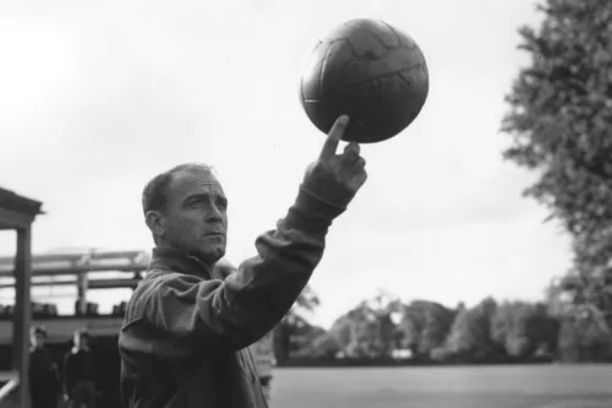
Image Credit: Al Jazeera
The godfather of Real Madrid’s European dynasty. Di Stéfano was everywhere—scoring, assisting, defending. His Ballon d’Ors only hint at the influence he wielded over generations. In 1989, he became the only man ever awarded the Super Ballon d’Or—a once-in-history honor.
He was the prototype of the total player.
9. Karl-Heinz Rummenigge – 2 Wins
Years Won: 1980, 1981
Club: Bayern Munich
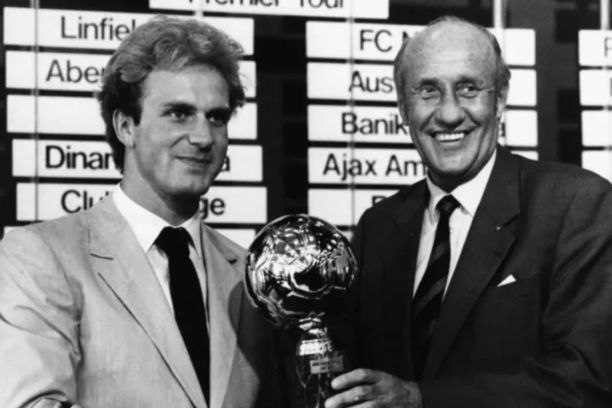
Image Credit:History of Soccer
A powerful forward with grace and pace, Rummenigge was the spearhead of Bayern and Germany. His back-to-back Ballon d’Or victories brought a time when German football reigned supreme.
Precision and physicality—all in one frame.
8. Kevin Keegan – 2 Wins
Years Won: 1978, 1979
Club: Hamburg
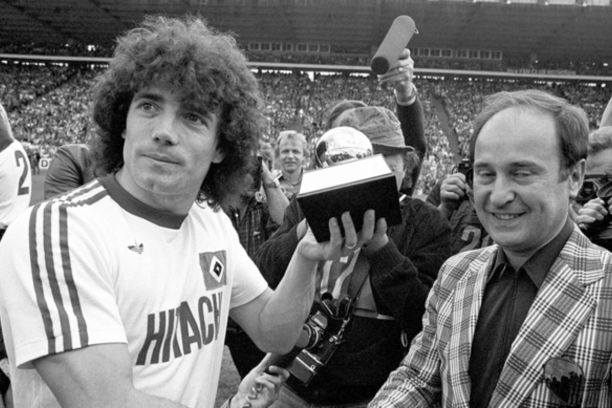
Image Credit: HSV
An Englishman who became a hero in Germany, Keegan’s back-to-back wins in the late 70s reflected his all-action style and fierce competitiveness. He was small in stature, but big in influence.
He played with fire in his heart and a never-ending engine.
7. Ronaldo Nazário – 2 Wins
Years Won: 1997, 2002
Clubs: Inter Milan, Real Madrid
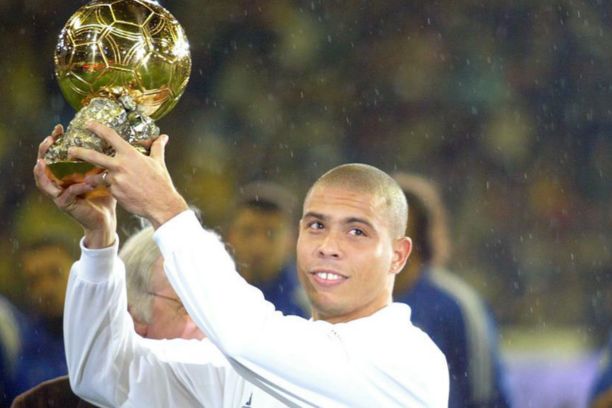
Image Credit: MARCA
Before injuries betrayed him, Ronaldo was unstoppable. Explosive, unpredictable, and efficient, he conquered Europe and the world. His 2002 Ballon d’Or win, after a triumphant World Cup comeback, remains one of football’s most emotional triumphs.
The original Ronaldo. The phenomenon.
6. Franz Beckenbauer – 2 Wins
Years Won: 1972, 1976
Club: Bayern Munich
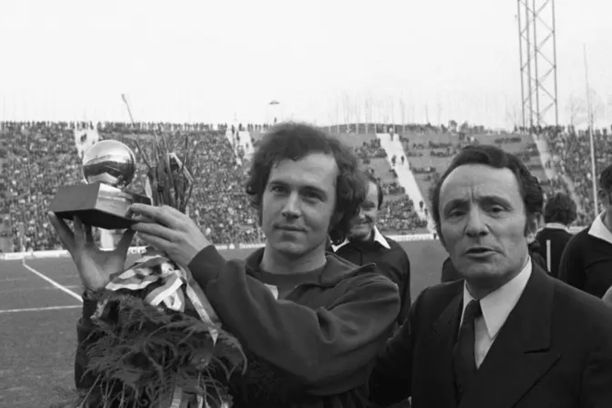
Image Credit: History of soccer
Known as “Der Kaiser,” Beckenbauer revolutionized the role of the sweeper. He was both elegant and commanding, a leader who made defending an art. Two Ballon d’Ors, for a man who made control look like choreography.
Football has produced many defenders. Beckenbauer remains the king.
5. Marco van Basten – 3 Wins
Years Won: 1988, 1989, 1992
Club: AC Milan
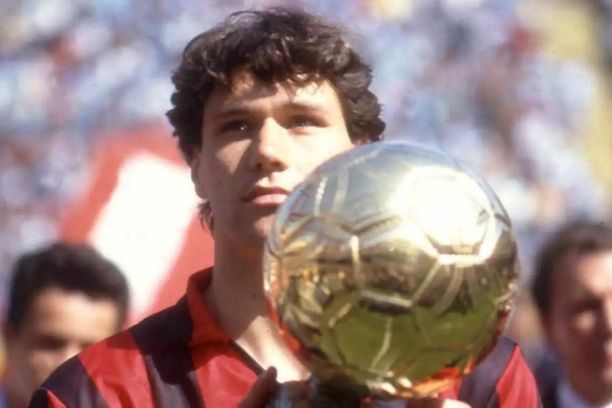
Image Credit: Goal.com
Van Basten was poetry with power. His technique, aerial prowess, and killer instinct lit up European nights. Injury cut his career short, but not before he collected three Ballon d’Or trophies and eternal admiration.
A striker built for highlight reels and hushed crowds.
4. Johan Cruyff – 3 Wins
Years Won: 1971, 1973, 1974
Clubs: Ajax, Barcelona
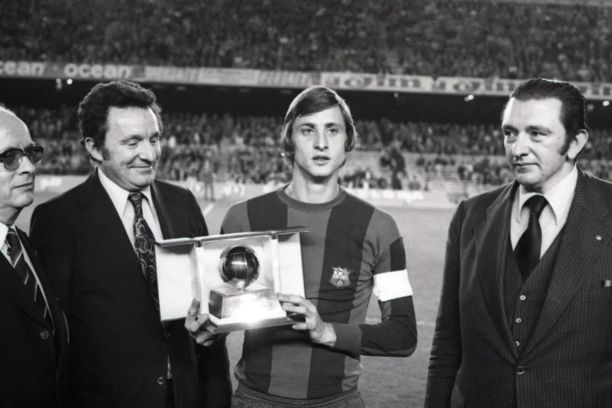
Image Credit: FC Barcelona
A philosopher in football, Cruyff is not just part of the ballon d’or winners—he rewrote the game. His “Total Football” legacy shaped modern tactics, and his three crowns reflect more than goals—they represent a movement.
Cruyff wasn’t merely a winner. He was an ideologue with a ball.
3. Michel Platini – 3 Wins
Years Won: 1983, 1984, 1985
Club: Juventus
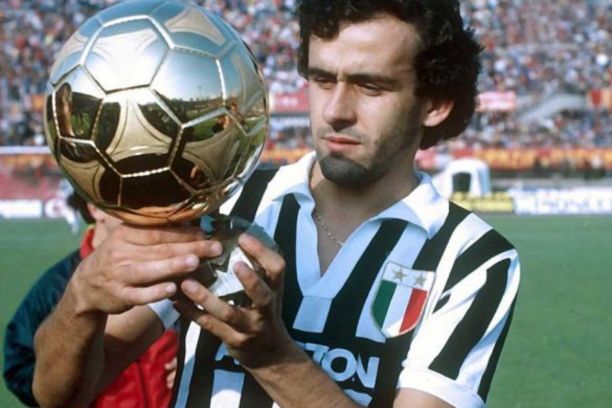
Image Credit: Football Make History
For three straight years, Michel Platini was football’s undisputed. With elegance, vision, and goals, the Frenchman dominated European football during Juventus’s golden era. No player had won three in a row until he did it in the mid-1980s.
He was a grace in boots.
2. Cristiano Ronaldo – 5 Wins
Years Won: 2008, 2013, 2014, 2016, 2017
Clubs: Manchester United, Real Madrid
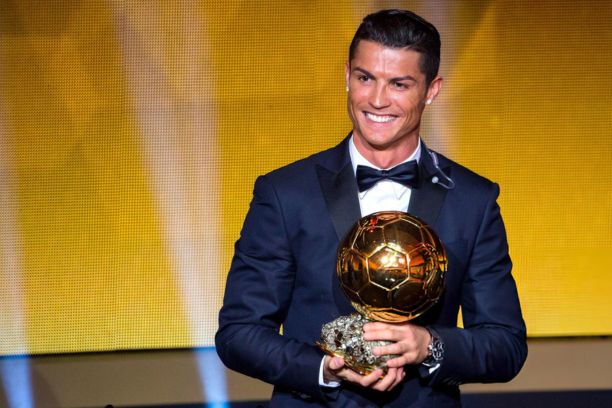
Image Credit: Getty Images
Cristiano Ronaldo is not only an athlete—he is a force of nature. Ruthless in front of goal, relentless in ambition, and ageless in drive, Ronaldo’s five Ballon d’Or wins are a testament to his longevity and transformation.
He conquered England, Spain, and the world. No one chased Messi harder—and no one came closer.
1. Lionel Messi – 8 Wins
Years Won: 2009, 2010, 2011, 2012, 2015, 2019, 2021, 2023
Clubs: Barcelona, Paris Saint-Germain, Inter Miami
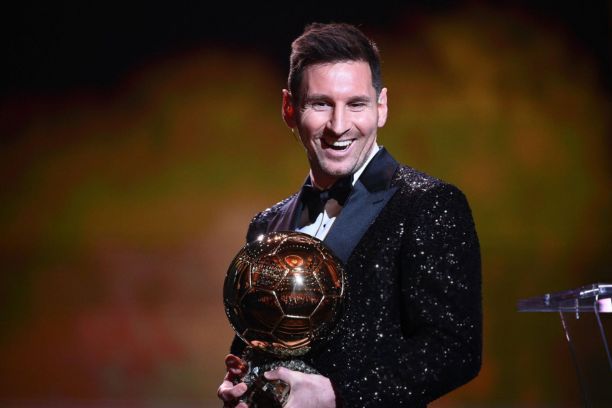
Image Credit: Getty Images
Messi redefined football. A humble genius that his artistry transcends eras. Whether dribbling past defenders or creating attacks with accurate precision, Messi’s reign over the Ballon d’Or is never met. His eighth crown in 2023—after winning the World Cup with Argentina—cemented his status as the greatest Ballon d’Or winner in history.
He is football’s most decorated individual. And yet, he remains its humblest servant.
What Past Ballon d’Or Winners Reveal About Greatness
- Longevity and Consistency
Messi. Ronaldo. Their rivalry wasn’t just about goals—it was about staying great, year after year, across systems, cities, and climates. Longevity is not luck. It’s a war with time. Those who win it earn greatness.
- Moments That Define Eras
Modrić in 2018. Cannavaro in 2006. These were not statistically the best. But their leadership, timing, and gravity pulled their nations and clubs toward glory. Football greatness is often a question of when, not just how much.
- Style and Substance
Ballon d’Or winners has the ability to display well for the fans. Even the hardy ones, like George Weah or Matthias Sammer, had an aura. Greatness, as defined by the Ballon d’Or, isn’t just what you do—it’s how you make people feel when you do it.
Wrapping Up
The Ballon d’Or is more than football’s top prize. It is a compass for greatness. A storyteller.
The greatest Ballon d’Or winners didn’t just dominate matches— they connected nations. They made people fall in love with the game again and again.
And that is what football greatness truly looks like.
People also asked:
Who is the youngest player to win the ballon d’or?
Ronaldo Nazário is the youngest player to win the ballon d’or. His 1997 Ballon d’Or win marked the arrival of a generational phenomenon. At just 21, he had already dazzled the world with explosive pace, unreal dribbling, and a goal-scoring instinct that was felt all over the world. That year, he scored 47 goals in 49 games across club and country.
He remains the youngest male Ballon d’Or winner in history—a record that has stood for over 25 years.
Why did Real Madrid protest on men’s ballon d’or winner?
Real Madrid’s decision to protest the men’s Ballon d’Or ceremony in 2024 came from deep dissatisfaction over the result—specifically, the omission of Vinícius Júnior as the winner.
Vinícius was widely viewed as the leading candidate, having scored 24 goals across La Liga and the Champions League, and helping Real Madrid achieve the prestigious domestic and continental double. When Manchester City’s Rodri claimed the Ballon d’Or instead, Real Madrid believed the voting panel had disrespected their player.
How many black players are ballon d’or winner?
Three Black players have won the Ballon d’Or: Eusebio, Ruud Gullit, and George Weah. Eusebio, born in Mozambique, represented Portugal. Ruud Gullit, whose father was from Suriname, won in 1987. George Weah, from Liberia, won in 1995.
Who is the oldest Ballon d’or winner in history?
Stanley Matthews, the legendary English footballer, was the first ever Ballon d’Or winner in 1956. And he also holds the record for being the oldest player to win the award. Matthews was 41 years old when he won the Ballon d’Or in 1963, a remarkable achievement for a player at that age.
How old was Messi when he became a Ballon d’Or winner?
Lionel Messi was 22 years old when he won his first Ballon d’Or award in 2009. He was 22 years and 160 days old at the time.
How old was Cristiano Ronaldo when he won his first Ballon d’Or?
Cristiano Ronaldo was 23 years old when he won his first Ballon d’Or award. This occurred in 2008, after his successful 2007-08 season with Manchester United.
Related Articles:
21 Most Decorated Football Players In History ranked by Trophies Won




